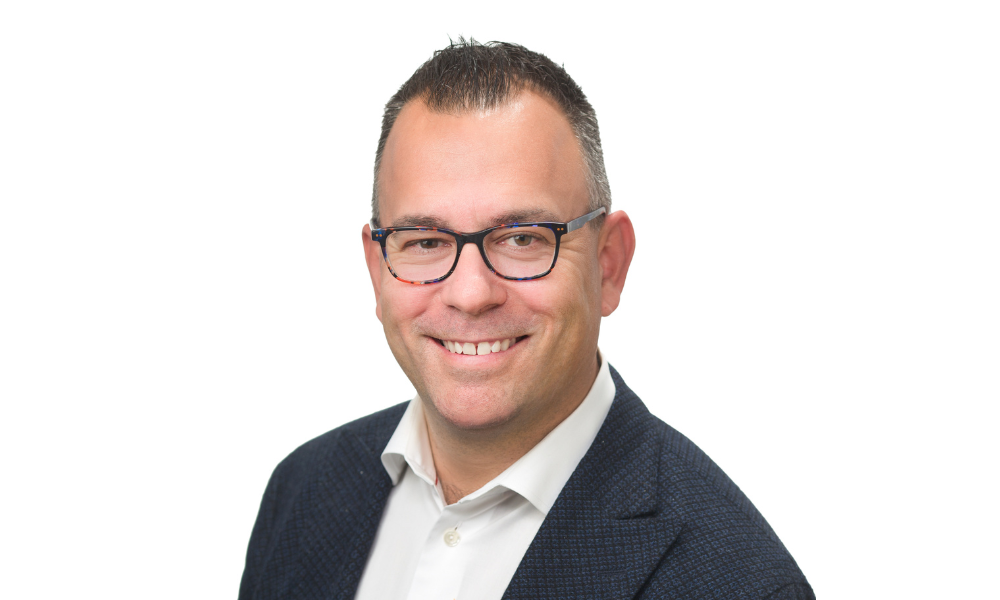Senior Investment Advisor explains how his office practices behavioural coaching

Clients can make the wrong decisions. Fear, FOMO, or a combination of the two have led to many clients buying high and selling low. Dean Bradshaw knows this all too well. The Senior Investment Advisor at Cresco Wealth Management of Wellington-Altus Private Wealth, explained that his team puts behavioural management as one of its four core offerings to clients.
“Behavioural finance is actually probably the most work, and really where we earn our money,” Bradshaw says. “Anybody can go buy the S&P 500 index and pay ten basis points for it. But nobody’s there to help them when the media starts reporting doom and they think the world’s about to end. It’s our job to make sure that our clients don’t make those behavioural mistakes, and that starts with holding ourselves accountable, so we aren’t making those behavioural mistakes.”
Bradshaw explained that the accountability his team strives for begins with a closer reading of news and an understanding of context. For example, he might hear from clients or colleagues that the Canadian economy is in great shape because of a low unemployment print. He can point out, though, that much of the new hiring is a direct result of government stimulus and public sector jobs — which might not point to the same resiliency in Canadian businesses.
Accountability also means challenging your own assumptions. Bradshaw sees bias as a growing problem among advisors, noting that many will go searching for something that validates their ideas, rather than looking for counterpoints. His team uses a range of variables and historical analyses to ensure they aren’t thinking in a bubble.
The result of that internal discipline is a form of financial management focused on risk, ahead of returns. By presenting financial plans and services to clients in the context of return, Bradshaw believes advisors aren’t setting themselves up for success. Chasing return can often mean buying high, while inviting criticism and condemnation for failing to meet return can result in selling low.
“When you do that you become a trader, and nobody makes money trading,” Bradshaw says. “You might get the odd one right, but you’re probably going to get way more wrong.”
A risk perspective, conversely, is about factoring in various kinds of risk. That includes risk associated with falling value, but it also includes the risk of missing out on a rally, or the risk associated with timing the market. Bradshaw explained that his team coaches their clients to think about investments from a risk perspective and in the context of a wider time horizon. They teach them to view equities the same way they might view buying a home, as a truly long-term investment.
Portfolio allocations are key to keeping clients onboard with a long-term plan. Bradshaw’s approach is to structure a portfolio so his clients yield exceeds their cash withdrawal needs. Provided that yield flows out to his clients, they feel less of an acute need to shift asset allocations or sell a position. If clients aren’t getting enough yield when markets turn down and they’re forced to sell assets, that results in a significant real loss for the portfolio. If they do have enough yield, when a client calls worried about their portfolio, Bradshaw and his team can point them to their income and show that they’re going to be okay short-term while assets recover over time.
Those client calls are really where the rubber hits the road on behavioural management. Bradshaw explains that he doesn’t wait for clients to call. His team reaches out proactively to address concerns that their clients might not have even articulated yet.
“I can tell what channels my clients watch,” Bradshaw says.
At the moment the primary worry he hears from clients is around the looming US election cycle. He answers those concerns with context, highlighting the degree of tension every country feels around its politics and government. A noisy US election cycle is nothing new, and pointing that out to clients can help calm their fears.
While an ideal client would stay committed to the plan, Bradshaw knows he has to meet client concerns with data, context, and knowledge.
“Since COVID-19, people are much more fearful, and they’re shocked more and more,” Bradshaw says. “To combat any mistakes our firm is trying to push more information, more data, and more context out there.”



